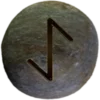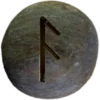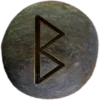Last Updated on February 28, 2025
Table of Contents


Mythology and History
Loki (pronounced LOH-kee) is one of the most complex figures in Norse mythology. Known as a trickster and shapeshifter, he plays a key role in many myths. He is sometimes called Loptr (LOHP-tr) or Hveðrungr (HVETH-rung-er, “the roaring one”). His lineage is unique, as it is neither Æsir nor Vanir. He is the son of the jötunn (giant) Fárbauti (FAR-bow-tee) and Laufey (LOW-fay), whose name means “leafy.” ![]()
Loki’s cunning intellect and ability to change forms make him both an ally and a foe of the gods. He fathered several infamous figures, including Hel (HEL), the wolf Fenrir (FEN-reer), and Jörmungandr (YOR-moon-gand-er), the Midgard serpent. His stories often feature mischief that turns into disaster, but they also showcase his wit and resourcefulness.
In the Prose Edda, Loki is instrumental in several significant events. He orchestrates Baldur’s death by manipulating Höðr and creating a weapon from mistletoe. He also brings about his own downfall, as his treachery leads the gods to bind him until Ragnarök. Despite his trickery, he occasionally aids the gods, such as helping Thor retrieve his stolen hammer. ![]()
His dual nature reflects chaos and change, embodying both destruction and the potential for transformation. His actions challenge the gods to adapt and evolve. In the Poetic Edda and the Prose Edda, Loki’s tales explore themes of loyalty, betrayal, and the consequences of unchecked ambition.
Runes Associated with Loki
Loki’s unpredictable nature aligns with the Kenaz (ᚲ) rune, symbolizing fire, transformation, and creativity. His cleverness and shape-shifting abilities reflect Kenaz’s association with illumination and controlled chaos.
The Eihwaz (ᛇ) Elder Futhark rune also resonates with Loki. Eihwaz signifies resilience and bridging opposites. His role as a mediator between gods and jötnar fits this rune’s duality and balance. ![]()
His Importance to Asatru
Loki represents the unpredictable forces in life that challenge growth and adaptation. Asatruar recognize his role as a necessary disruptor. His tales remind followers of the value of cunning, resilience, and navigating chaos to find balance. His complexities inspire contemplation about morality, responsibility, and the nature of change.


